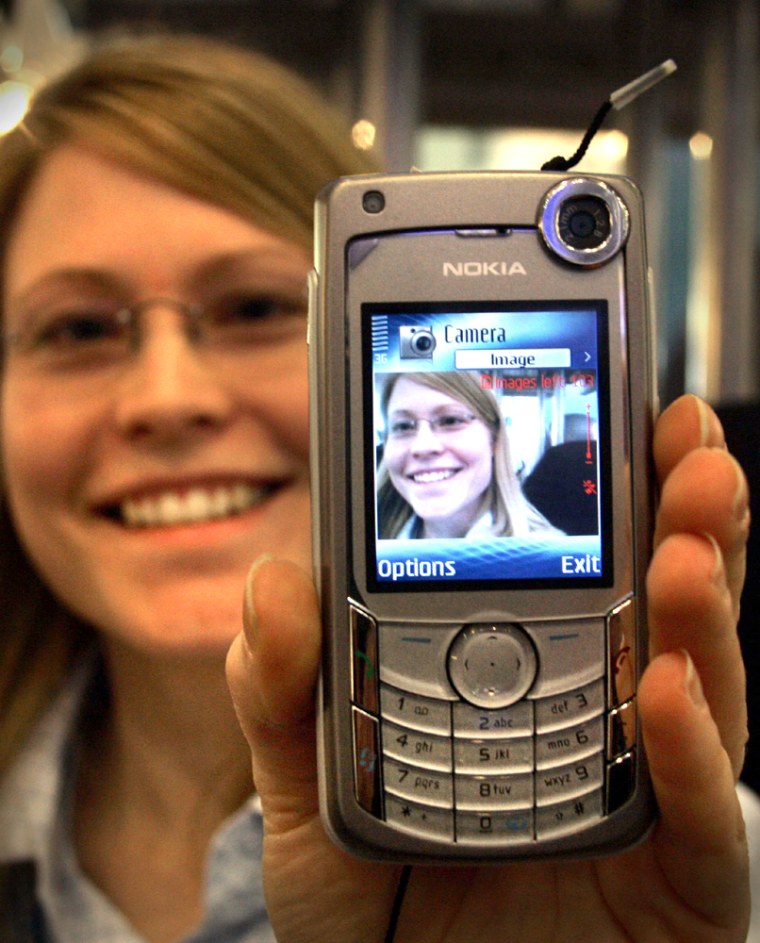The world’s largest mobile phone maker, Nokia, and software giant Microsoft struck a deal on Monday to make it easier for consumers to buy digital music online and play it back on their handsets.
In a comprehensive agreement, involving a separate deal with digital media company Loudeye, Nokia agreed to put Microsoft’s music player software into its handsets.
In return, Microsoft, will introduce open standards for digital music compression and piracy protection in its Media Players for personal computers.
“Some big ‘religious’ positions have changed at a high level at Nokia to make this happen,” said industry analyst Ben Wood at Gartner market research. For many years, handset vendors have allied against Microsoft because of its market dominance.
But Nokia’s chief executive of multimedia devices, Anssi Vanjoki, said at the 3GSM mobile communications trade show it would be hard to find a better partner than “The King of PCs.”
Consumers keep a lot of digital music in personal computers and will be able to simply transfer those tracks to their phone.
“This agreement makes it easier for consumers to download music they want to listen to, without having to worry about whether or not the file format is supported,” Vanjoki said, in an interview, adding that the mobile world was simply taking a lead from the success of music download services on the Web.
The deal brings together two long-time rivals, with Nokia previously using either in-house or RealNetworks music and video software.
The Finnish firm sold 10 million phones in 2004 with an integrated music player, and a spokesman told Reuters Nokia would launch a phone in 2005 that would support Windows Audio.
The move comes as the mobile technology that supports the faster downloading of music, 3G, takes off. Nokia launched a 3G phone on Monday with two other new models. It sees 70 million 3G subscribers by the end of 2005 versus 16 million in 2004.
Sony Ericsson and Motorola, in separate announcements here, unveiled their own initiatives to bring music download services to mobile phones. Sony Ericsson would hook up with Sony’s Connect online music store, which like Loudeye would adopt open standards, while Motorola unveiled its first phone for Apple’s iTunes Music Store.
Breakthrough for Microsoft
The deal is a boost to Microsoft, which until now has had little success penetrating the mobile handset market. It has tried to push a slimmed-down version of Windows for use in so-called smartphones, which offer limited PC-type functions such as email, but its market share is below one percent.
(MSNBC is a Microsoft - NBC joint venture.)
On the back of Nokia’s formidable market share of one-third of the 684 million-units-a-year handset market, the Redmond, Washington-based software behemoth has a much bigger opportunity to get its media player software into handsets around the world.
The software maker hopes it will encourage consumers to buy more songs in online Internet music stores that use its compression and anti-piracy software. Internet music stores offer music in their own proprietary formats. On mobile phones however, iTunes would now be the only closed system, while rivals Connect and Loudeye would adopt open standards.
“Consumers will be able to move music from one (PC) world to the other (handset world), without having to understand any of the acronyms,” said Microsoft’s chief of the digital media division Amir Majidimehr, referring to the alphabet soup which describes different compression and anti-piracy technologies.
The separate deal with Loudeye offers another seismic shift in industry politics, because until now Loudeye only sold Internet download systems that run on Microsoft software. Loudeye’s entry into mobile download services with Nokia means it has embraced the open standards.
Nokia said the mobile music platform from Loudeye will let users browse, search, listen, and download songs and ring tones either to their phones or to their computers.
Mobile services operators around the world are pressing hard for open standards so that consumers are not confined to only one format for playing the songs they legally purchased.
The Loudeye/Nokia service is ready to use in over 30 countries. Operator deals are expected in the next few months.
For Nokia, it means it can start riding the wave of digital music download services that have become popular recently.
Nokia said the Microsoft deal would not affect its relationship with RealNetworks. The two firms said earlier this month that they were expanding cooperation to bring video and music players to more Nokia phones.
